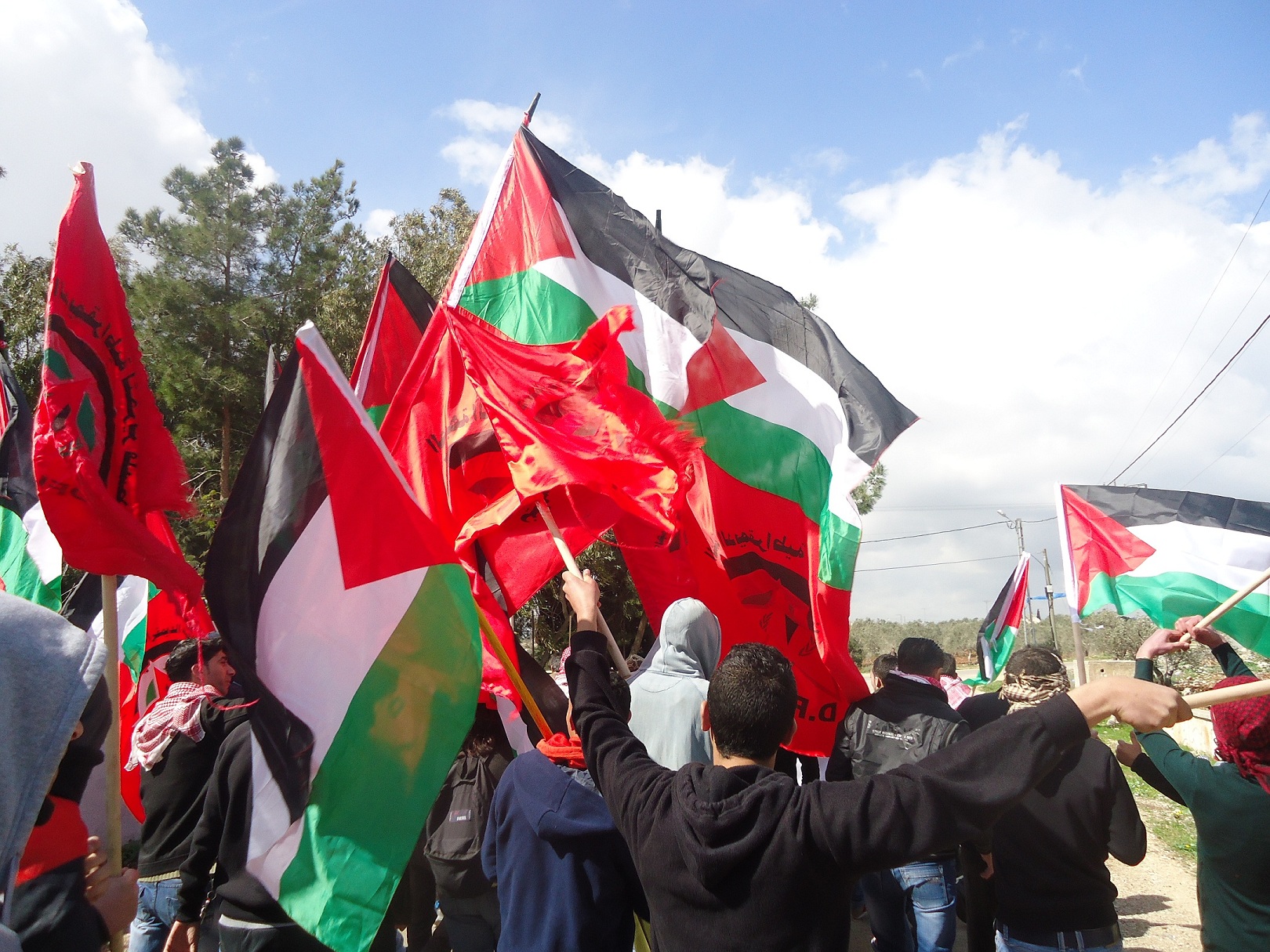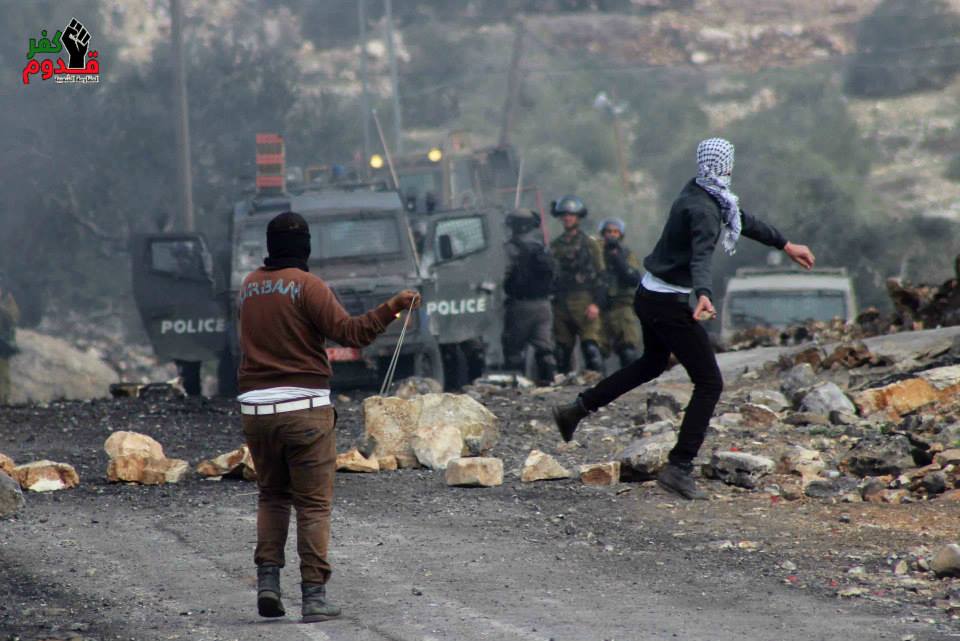Tag: Demonstration
-
Video and photos: Israeli forces injure 17 in popular resistance east of Gaza
17th February 2014 | International Solidarity Movement, Charlie Andreasson | Gaza, Occupied Palestine An estimated 400 – 500 people, most in their late teens, gathered at the hillside east of Jabaliya for the recurrent demonstration against the occupation. There was no organizer, leader or banners, and the demonstration was largely chaotic. Stones were thrown, mostly from quite…
-
Palestinian shot by live ammunition during demonstration in Tura
15th February 2014 | International Solidarity Movement, Nablus Team | Tura, Occupied Palestine On Saturday, February 15th, Demonstrators gathered at 11:30 a.m. by the village of Tura near the annexation wall to celebrate the 25th anniversary of the DFLP (Democratic Front for the Liberation of Palestine). People began chanting and marching in the direction of the checkpoint.…
-
Four injured at weekly demonstration in Kafr Qaddom
14th February 2014 | International Solidarity Movement, Nablus Team | Kafr Qaddom, Occupied Palestine At approximately 10:00 a.m. on Friday, the Israeli army positioned themselves on top of the hill overlooking Kafr Qaddom and on the closed road that leads to the illegal settlement, Qedumim. As they did last week, the Israeli army attempted to portray…



